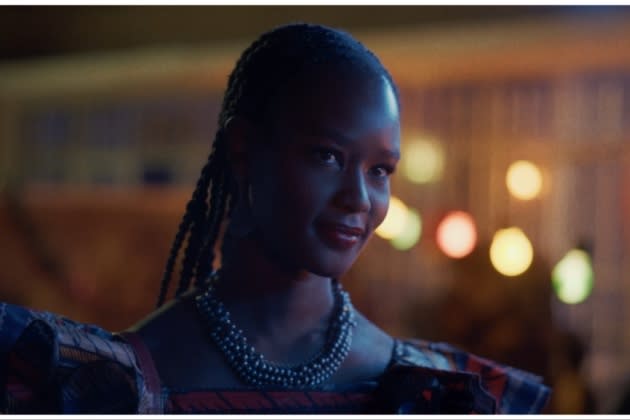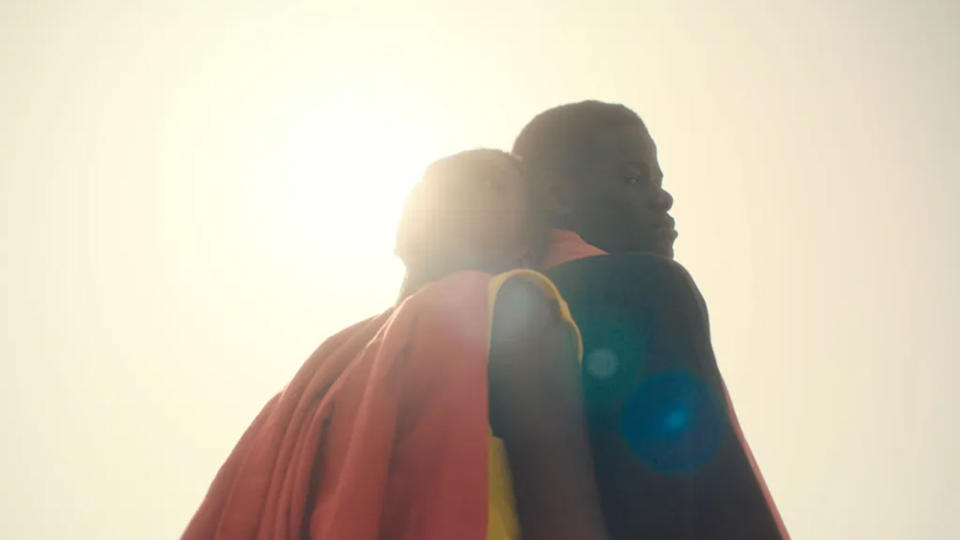With a Record Number of African Films in Cannes, Marketgoers Ask if This Is the Continent’s Time

A record number of African films are premiering at this year’s Cannes Film Festival — including two titles in the main competition and four more in Un Certain Regard — promising a robust turnout on the Croisette from a continent that doesn’t often find itself being feted on world cinema’s grandest stage.
Perhaps a more noticeable shift, however, has been taking place in and around the Palais des Festivals, where participants at the Cannes Market are opening their arms — and their checkbooks — to an industry just beginning to realize its potential.
More from Variety
Witness the delegation of international film financiers, including Creative Wealth Media’s Jason Cloth and Convergent Media Capital’s Michael Cleaver, gathered on a recent, rainy morning to talk shop at a full house at the Pavillon Afriques. Or check the scene at the Palais des Festivals nearby, where three representatives of the Cairo-based African Export-Import Bank (Afreximbank) assembled at the African Pavilion (no relation) to discuss the bank’s billion-dollar fund for the cultural sector.
As the premier marketplace for global cinema, the Cannes Marché is a natural platform for high-level engagement between the burgeoning African film industry and the rest of the world. “Opportunities are there, but the opportunity to connect isn’t always there,” said Afreximbank’s Victor Mukete, who on Thursday participated in a market conference on film financing on the continent that also included Emad Eskandar, head of Saudi Arabia’s Red Sea Fund, which last year provided $14 million in financing to films from Africa and the Arab world.
Another conference speaker, Moses Babatope, managing director of leading Nigerian distributor and production house FilmOne, added that after years of flirtation with Africa’s vast, untapped film market, the global industry might finally be ready to put its money where its mouth is. “Beyond the razzmatazz and the initial buzz, there seems to be a willingness to act,” he said.
This year’s Cannes Film Festival features a bumper crop of titles from Africa and its diaspora, including the first Sudanese film ever to make the French fest’s official selection — Mohamed Kordofani’s Un Certain Regard player “Goodbye Julia” — as well as the second ever film directed by a Black woman to compete for the Palme d’Or: “Banel & Adama,” the feature debut of French Senegalese filmmaker Ramata-Toulaye Sy.
While the old guard of Francophone West African cinema is often well-represented in Cannes by the likes of Palme d’Or contenders Mahamat-Saleh Haroun (“Lingui, the Sacred Bonds”), of Chad, or Mauritanian director Abderrahmane Sissako (“Timbuktu”), there’s been a palpable shift in recent years toward a younger, more diverse crop of cineastes.
“What we’re witnessing is a generation of filmmakers who grew up having access to what the world had to offer in terms of filmmaking and who are now using this to complement what their cultural heritage gave them,” said Sata Cissokho, head of acquisitions at Memento International, which is repping Congolese Belgian rapper-turned-filmmaker Baloji’s debut “Omen,” playing in Un Certain Regard.
“It’s no longer about making the films that are expected from the continent but making the most of the richness of their cultures, combining the African art of storytelling with the Westernized codes of narration.”
“There’s been a great change thanks to the new generation,” said Sy, who began working on the script for “Banel & Adama” nearly a decade ago. That was before Wanuri Kahiu broke ground in 2018 with her youthful, lesbian love story “Rafiki” — the first Kenyan film ever selected in Cannes — and Mati Diop made history one year later as the first Black woman to compete for the Palme d’Or, with her genre-bending, supernatural romantic drama “Atlantics.”

“It’s exciting to realize that yes, we have other stories to tell about Africa,” said Sy. “There is poverty. There is violence. But we can have a creative approach to this reality. We can have more inventiveness and more creativity in the way we approach [storytelling].”
Credit Netflix and other global streaming services, too, for offering fresh possibilities and new horizons that would have been unthinkable even a few years ago. Today those platforms are bringing African genre films such as Jade Osiberu’s gritty crime thriller “Gangs of Lagos” — Amazon Prime Video’s first African Original — or the comedy “Chief Daddy 2: Going For Broke,” from Nigerian media mogul Mo Abudu’s EbonyLife Films, to millions of households around the world.
Partly thanks to the Black Lives Matter movement and the growing diversity push in Hollywood, partly due to the blockbuster, billion-dollar success of Marvel’s “Black Panther” — credited by many on the continent with being a paradigm-shifter for African cinema — industry-watchers are witnessing unprecedented demand for African storytelling.
That extends to the cloistered, fluorescent-lit den of dealmaking at Cannes’ Marché du Film. “The market is always hungry for novelty and for assured voices with a rich universe. And buyers are also aware of societal shifts,” said Memento’s Cissokho. “There’s now room and desire for [African] filmmakers.”
As the rain gathered force Friday afternoon in Cannes, Nigerian filmmakers Abba Makama (“The Lost Okoroshi”) and Michael Omonua (“The Man Who Cuts Tattoos”), co-directors of the 2021 Locarno premiere “Juju Stories,” dodged the raindrops on the Croisette while taking a lunch break from a busy morning at La Fabrique Cinéma, the French support program for filmmakers from emerging countries. Nearby, Inya Lawal, founder of the Africa Creative Market, and Nigerian producer Tonye Princewill (“77 Movie”), caffeinated on the soggy terrace outside the Israeli pavilion.
The duo was on hand for a conversation hosted by the pavilion about creative collaboration between Africa, Israel and the rest of the world. Lawal, whose Africa Creative Market has Paramount on board as a partner, launched the event in Lagos last year, with the 2024 edition set for Dubai.
“The idea is to find sustainable structures that will help build the creative economy [in Africa]…and to bring international and local stakeholders together,” she said. The inaugural event boasted more than 10,000 participants from 26 countries in person and online, including a summit for members of the Women in Film and Television International (WIFTI).
As she looks to shore up more international partnerships this week in Cannes, Lawal gestured to the rain-soaked Croisette, just hours before Tunisian filmmaker Kaouther Ben Hania’s docudrama “Four Daughters” was set to bow in competition. “Everyone is talking about Africa,” she said. “All these things are springing up, but we need to bring them together and stop working in silos.”
Best of Variety
Sign up for Variety’s Newsletter. For the latest news, follow us on Facebook, Twitter, and Instagram.


